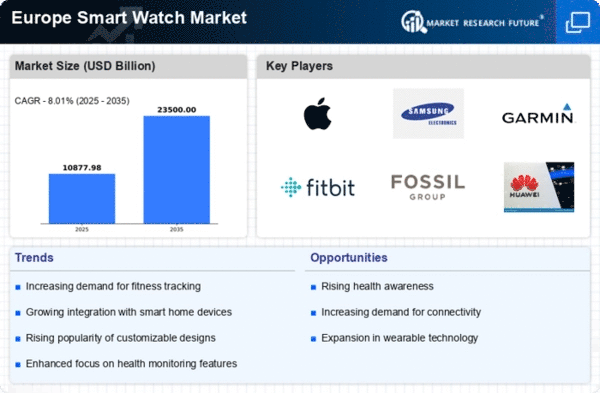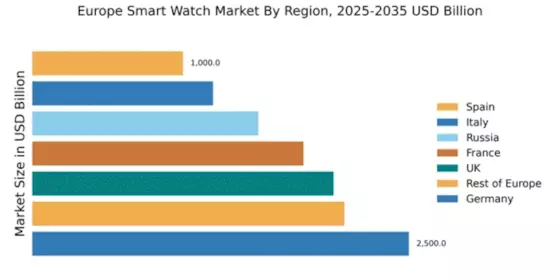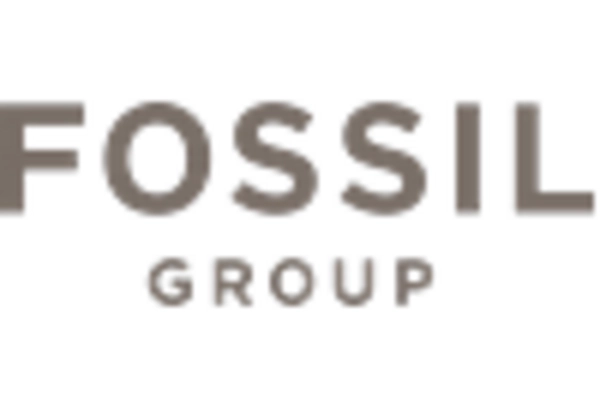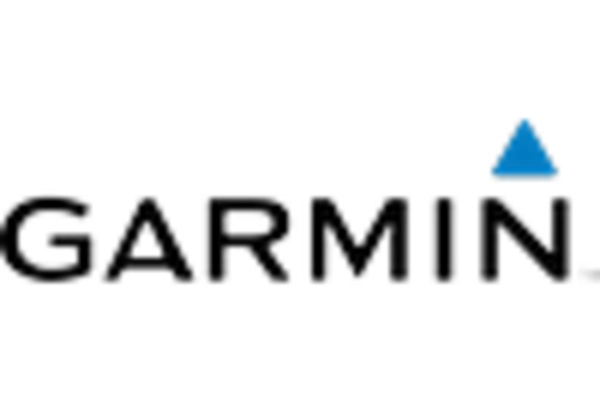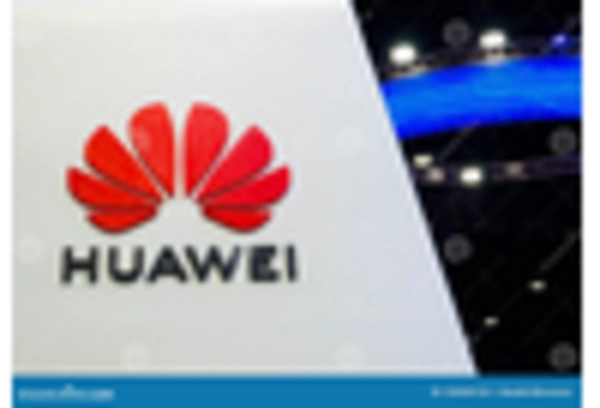Germany : Innovation Drives German Consumer Demand
Key markets within Germany include major cities like Berlin, Munich, and Frankfurt, where urban consumers are particularly inclined towards smart technology. The competitive landscape features significant players such as Apple, Samsung, and Garmin, all vying for market share. Local dynamics are characterized by a preference for multifunctional devices that integrate seamlessly with other smart technologies. The health and fitness sector is a major application area, with consumers increasingly seeking devices that offer advanced health monitoring features.
UK : Health Trends Fueling Market Expansion
Key markets include London, Manchester, and Birmingham, where urban populations are more inclined to adopt wearable technology. The competitive landscape is dominated by major players like Apple, Fitbit, and Samsung, which have established strong brand loyalty. Local market dynamics favor devices that offer seamless integration with smartphones and other smart home devices. The fitness and wellness industry is a significant sector for smartwatch applications, with consumers increasingly prioritizing health tracking capabilities.
France : Fashion Meets Functionality in Wearables
Key markets include Paris, Lyon, and Marseille, where consumers are more inclined to adopt smart technology. The competitive landscape features brands like Apple, Garmin, and Withings, which cater to both tech-savvy and fashion-conscious consumers. Local dynamics emphasize the importance of design and aesthetics, with many consumers looking for devices that complement their lifestyle. The fashion and health sectors are key application areas, with a growing interest in smartwatches that offer both style and health monitoring capabilities.
Russia : Tech Adoption on the Rise
Key markets include Moscow and St. Petersburg, where urban consumers are more likely to adopt wearable technology. The competitive landscape features brands like Apple, Samsung, and Huawei, which are gaining traction among Russian consumers. Local market dynamics are characterized by a growing interest in multifunctional devices that offer health monitoring features. The fitness and wellness sector is a significant application area, with consumers increasingly seeking devices that support their health goals.
Italy : Fashion and Functionality Combined
Key markets include Milan, Rome, and Turin, where urban populations are more inclined to adopt smart technology. The competitive landscape features brands like Apple, Garmin, and Fossil, which cater to both tech-savvy and fashion-conscious consumers. Local dynamics emphasize the importance of design and aesthetics, with many consumers seeking devices that reflect their personal style. The fashion and health sectors are key application areas, with a growing interest in smartwatches that offer both style and health monitoring capabilities.
Spain : Health Awareness Drives Demand
Key markets include Madrid and Barcelona, where urban consumers are more likely to adopt wearable technology. The competitive landscape features brands like Apple, Samsung, and Xiaomi, which are gaining traction among Spanish consumers. Local market dynamics are characterized by a growing interest in multifunctional devices that offer health monitoring features. The fitness and wellness sector is a significant application area, with consumers increasingly seeking devices that support their health goals.
Rest of Europe : Varied Preferences Shape Demand
Key markets include cities across Scandinavia, the Benelux region, and Eastern Europe, where urban populations are increasingly adopting smart technology. The competitive landscape features a mix of global brands like Apple and Samsung, alongside local players. Local market dynamics vary significantly, with some regions emphasizing health tracking while others focus on lifestyle and fashion. The fitness and wellness sector is a significant application area, with consumers increasingly seeking devices that support their health goals.

